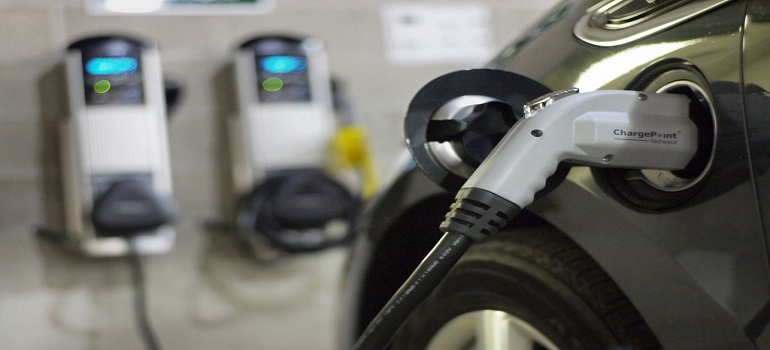 The government is likely to extend financial support of Rs 8,730 crore for the second phase of the FAME India spanning five years but the incentives will be restricted to new energy vehicles used for public transport, commercial purposes and high-speed two-wheelers.
The government is likely to extend financial support of Rs 8,730 crore for the second phase of the FAME India spanning five years but the incentives will be restricted to new energy vehicles used for public transport, commercial purposes and high-speed two-wheelers.
According to officials in the Heavy Industry Ministry, which has proposed the outlay and road-map for the scheme, the government has decided to adopt a ‘technology agnostic’ approach and only advanced chemistry batteries will be promoted in the Phase II of the scheme.
The second phase of the scheme, which was expected to be implemented from April 1, is likely to be delayed and the proposals entailing financial support to the tune of Rs 8,730 crore are likely to sent to the Union Cabinet for approval soon, an official said.
Out of the Rs 8,730 crore, support to the tune of Rs 5,550 crore has been proposed as demand side incentives during the second phase of the scheme spanning five years, said sources.
The fund support includes Rs 2,500 crore for buses, Rs 1,000 crore for four-wheelers, Rs 600 crore for high-speed two wheelers (with maximum speed greater than 25 km) and Rs 750 crore for high-speed three-wheelers.
The proposed plan for the second phase has been submitted recently to government think tank NITI Aayog, which is in the process of collating inputs from related ministries including Power and Road, Transport & Highways.
The phase one or pilot phase of the scheme was to expire on March 31 and is likely to be extended by few more months, another official added.
Making it clear that the government’s focus is on public transport and commercial vehicles, a top government official told PTI, “Support under FAME II, will be extended exclusively to public transport and/or commercial transport. However, two-wheeler segment with maximum speed greater than 25 km/h will continue to be supported for all users.”
The proposal also seeks to link incentives to demand for electric vehicles and their localisation level to promote ‘Make in India’ programme.
“It is proposed to begin with 50 per cent localisation; to be increased to 60 per cent by second year and 70 per cent thereafter. Proportionate reduction in incentives by 10 per cent each year after Year 2 is envisaged,” the official added.
The government has also decided not to specify any type of technology for providing support under the scheme with “all zero emission vehicles (ZEV), including fuel cell electric vehicles (FCEV), envisaged to be supported”.
“The proposed scheme is also intended to support hybrid and plug-in hybrid vehicles to build volume of EV components which are similar for electric and hybrid vehicles,” the official said, adding, however, stringent norms based on optimal energy saving as per market viability would be defined for strong hybrid vehicles.
The official further said in order to prevent very high-end vehicles to take advantage of government incentives, it has been proposed to restrict incentives to vehicles with ex-factory prices lower than a particular threshold value.
These ex-factory prices range from Rs 1.5 lakh for high-speed two-wheelers to Rs 3 crore for buses, while for four-wheelers, including strong hybrid and plug-in hybrid, it is capped at Rs 15 lakh.
For heavy duty trucks, the factory price has been capped at Rs 2 crore and for light commercial vehicle it is Rs 10 lakh.
“The incentives proposed are in proportion to the fuel efficiency of these vehicles when compared to corporate average of vehicles of that category,” the official said.
Under the FAME II, the ministry has also proposed that in cases where vehicles are sold without batteries for any fleet of 50 vehicles and above, operators can claim incentives for purchase of bulk batteries.
The official also said the proposal aims to balance the extra acquisition cost of zero emission vehicles compared to internal combustion engines (ICE) to be recovered through operational savings within a maximum period of three years for all vehicles and for busses in seven years.
On the infrastructure front, under the second phase of the scheme, the government plans to set up a network of charging stations in all metros, cities with million plus population and smart cities.
The Heavy Industry Ministry had estimated an overall requirement of Rs 14,000 crore for Faster Adoption and Manufacturing of Electric (and Hybrid) scheme, dubbed as FAME India.

